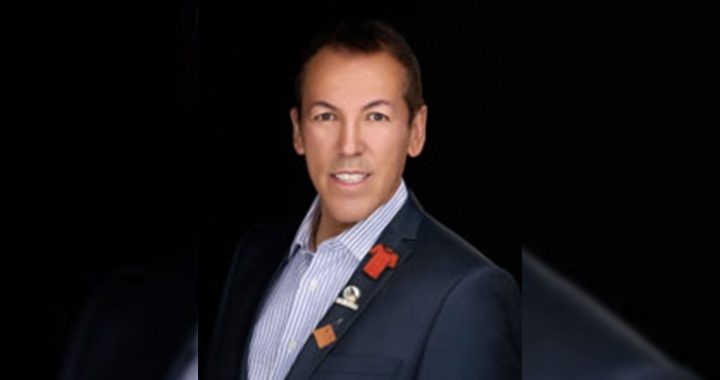Jorge Barrera
APTN National News
The Justin Trudeau government was lauded Tuesday for officially embracing the UN Declaration on the Rights of Indigenous Peoples (UNDRIP) during a presentation before the world body’s Permanent Forum on Indigenous Issues.
Indigenous Affairs Minister Carolyn Bennett officially indicated Canada’s decision to fully embrace UNDRIP during a speech at the permanent forum in New York City.
“I am here to announce on behalf of Canada, that we are now a full supporter of the declaration, without qualification,” said Bennett, during her speech. “We intend nothing less than to adopt and implement the declaration in accordance with the Canadian Constitution.”
First Nation leaders were quick to praise Bennett’s declaration.
“Canada is sending an important message to Indigenous peoples, to all Canadians and the international community that Indigenous rights are human rights,” said Assembly of First Nations National Chief Perry Bellegarde in a statement. “(UNDRIP) is a framework and essential tool to guide the work of reconciliation that will move us all forward.”
Quebec’s regional AFN Chief Ghislain Picard said the Trudeau government’s commitment lays a “strong foundation for the way in which we should work together: respectfully.”
Marie-Claude Landry, the chief commissioner for the Canadian Human Rights Commission, also praised the government for its embrace of UNDRIP.
“This important moment in history is a key step towards supporting and rebuilding the nation-to-nation relationship between Canada and Indigenous peoples,” said Landry, in a statement. “Canada’s decision to acknowledge the unique and inherent rights of Canada’s Indigenous peoples sends a strong message to Canadians and the world.”
Natan Obed, President of Inuit Tapiriit Kanatami, said he welcomed Canada’s “statement of good will” but expressed concern the Trudeau government was still qualifying its support for UNDRIP by saying it would be interpreted through section 35 of the Constitution.
“Section 35 is the legal floor upon which to build in more robust, consent-based processes between Indigenous peoples and the Government of Canada that are based on our right to free, prior and informed consent, which is a much stronger standard than ‘consultation,’” said Obed, in a statement. “Unfortunately, these qualifying statements based on Canada’s interpretation about how the Declaration will be implemented are fundamental departures from the spirit and intent of the Declaration itself.”
While the Trudeau government has previously said it would be adopting and implementing UNDRIP, it was urged behind the scenes by prominent First Nation leaders to make a public and political commitment on the document.
Bellegarde wrote to Trudeau in April requesting the government declare its support for UNDRIP at the permanent forum.
The letter also asked the government to officially withdraw qualifications attached to the previous Conservative government’s endorsement of UNDRIP in 2010, which reversed its 2007 vote against the document.
Bellegarde’s letter stated the previous administration of Stephen Harper submitted an “explanation of vote” (EOV) in relation to its stance on UNDRIP during the World Conference of Indigenous Peoples in 2014.
“These statements were clearly aimed at diminishing the importance of the rights recognized in the declaration and are inconsistent with international human rights law,” said Bellegarde, in his April 15 letter to Trudeau, which was obtained by APTN National News. “In view of the progressive and welcome positions of your government, the AFN strongly believes it is time for Canada to formally and explicitly withdraw its EOV.”
Bennett said Monday, during a press conference, the government was formally removing its “permanent objector status” to UNDRIP. Bennett couldn’t explain exactly what that meant during a teleconference with reporters following the press conference.
Indigenous Affairs officials were also not able to explain what this meant and whether this move covered Bellegarde’s request to remove the EOV. The department had not provided a response to a request for comment as of this article’s posting.
Global Affairs referred questions on the issue to Indigenous Affairs.
Paul Joffe, a lawyer with an expertise in international human rights, said the term “permanent objector status” exists in legal theory in reference to concerns from states over certain rights and obligations becoming customary in international law.
Joffe, who was involved in the process that created UNDRIP, said Canada could never claim permanent objector status on the document because its objections focused on certain provisions and only surfaced after the Conservatives took power.
Joffe said the Conservatives essentially eliminated any possibility of Canada claiming permanent objector status when it decided to endorse UNDRIP in 2010.
“Anyone who endorses an instrument would be laughed out of the forum if they said, ‘we are permanent objectors,’” said Joffe, who also represents the Grand Council of the Crees in Quebec. “The two are totally contradictory.”
Joffe said the UN doesn’t keep track of which states have permanent objector status to the various international agreements because not all believe such a position is even valid.
“No one keeps track…some don’t believe in the theory,” said Joffe. “The onus is on the state to show they are permanent objectors and it doesn’t mean they will believed. Countries say all types of things in these political negotiations, so it doesn’t mean it has any validity.”
@JorgeBarrera










